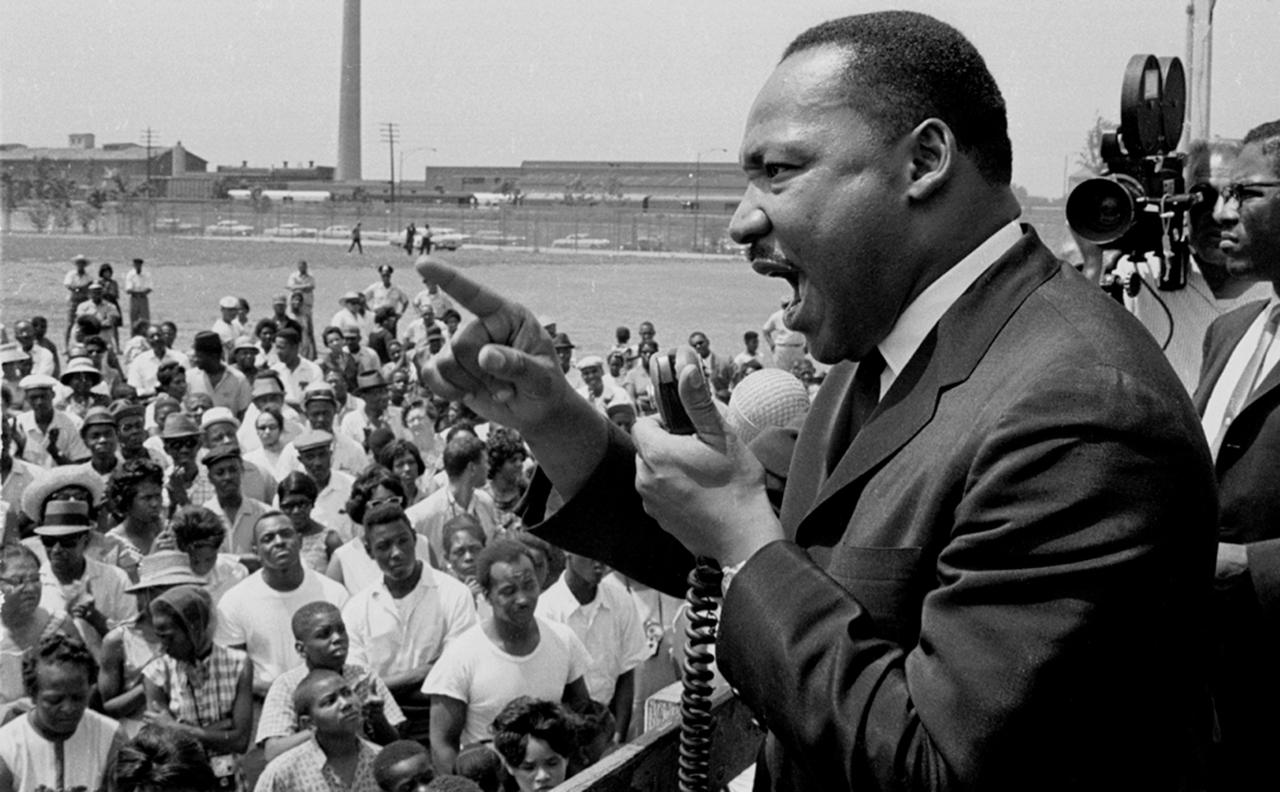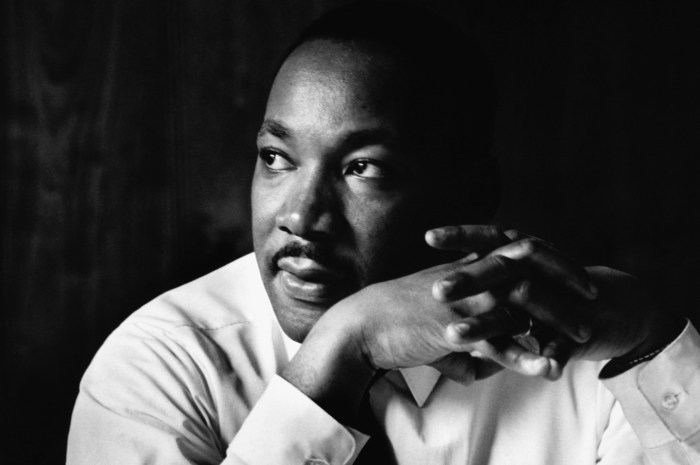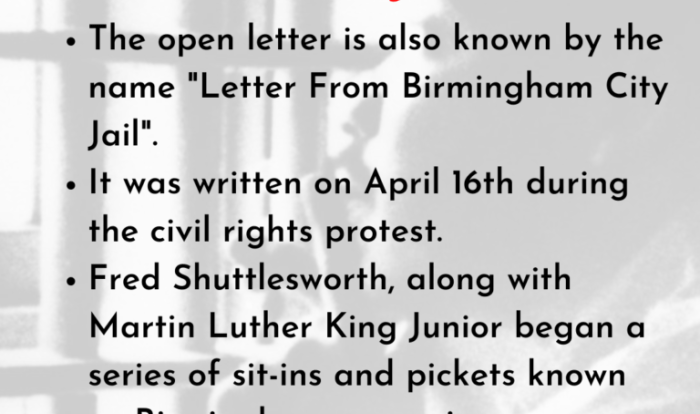Examples of ethos in letter from birmingham jail – In the seminal “Letter from Birmingham Jail,” Dr. Martin Luther King Jr. masterfully employs ethos, establishing himself as a respected leader and advocate for civil rights. This essay analyzes specific passages where King leverages personal experiences, moral appeals, and historical references to build his credibility and persuasive impact.
King’s use of ethos shapes the letter’s persuasive power, influencing its reception and legacy. His credibility contributes to the civil rights movement’s advancement, demonstrating the effectiveness of ethos in shaping historical events.
Ethos in Letter from Birmingham Jail

Ethos, a Greek term meaning “character,” is a persuasive technique that involves establishing the speaker’s credibility and trustworthiness. In his “Letter from Birmingham Jail,” Martin Luther King Jr. employs ethos to enhance the persuasiveness of his arguments for civil rights.
How King Establishes Ethos
King establishes his ethos by presenting himself as a respected leader and advocate for civil rights. He emphasizes his extensive experience in the movement, including his involvement in the Montgomery bus boycott and his leadership of the Southern Christian Leadership Conference (SCLC).
Additionally, King appeals to his moral character by presenting himself as a nonviolent advocate for justice. He cites his Christian beliefs and the teachings of Mahatma Gandhi as the foundation for his commitment to peaceful resistance.
Examples of Ethos in the Letter, Examples of ethos in letter from birmingham jail
Throughout the letter, King uses personal experiences and moral appeals to build credibility. For instance, he recounts his own experiences of discrimination and violence to illustrate the urgency of the civil rights struggle.
Moreover, King frequently references historical and biblical figures to support his arguments. He cites the Declaration of Independence, the Constitution, and the teachings of Jesus Christ to demonstrate the moral and legal basis for his demands for equality.
Ethos and the Impact of the Letter
King’s use of ethos significantly contributed to the persuasive impact of the “Letter from Birmingham Jail.” His credibility as a respected leader and advocate for civil rights gave weight to his arguments and helped sway public opinion in favor of the movement.
Furthermore, King’s use of ethos helped shape the legacy of the letter. It is widely regarded as one of the most influential documents of the civil rights movement, in part due to the strong ethos that King established throughout the text.
Comparative Analysis of Ethos
Comparing King’s use of ethos in “Letter from Birmingham Jail” to other historical speeches or writings reveals both similarities and differences in how leaders establish their credibility.
One similarity is the use of personal experiences and moral appeals. Like King, many other leaders have effectively used their own stories and values to connect with audiences and build trust.
However, differences can also be found in the specific rhetorical strategies employed. For example, King’s emphasis on nonviolence and his use of religious references set his use of ethos apart from some other leaders who have relied more on aggressive or confrontational tactics.
Helpful Answers: Examples Of Ethos In Letter From Birmingham Jail
What is ethos and why is it important in persuasive writing?
Ethos refers to the credibility and trustworthiness of a writer or speaker. It is crucial in persuasive writing as it establishes the author’s authority and expertise on the subject matter, making their arguments more compelling.
How does King establish his ethos in “Letter from Birmingham Jail”?
King employs various techniques to build his ethos, including citing his personal experiences as a civil rights leader, appealing to moral principles, and referencing historical and biblical texts.
What are some specific examples of King’s use of ethos in the letter?
King recounts his experiences with nonviolent resistance, appeals to the conscience of his readers, and draws parallels to historical figures like Jesus Christ and Mahatma Gandhi to enhance his credibility.


